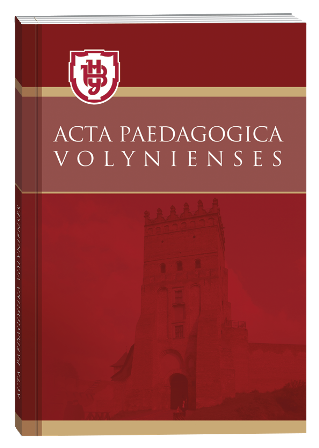COMPUTER TECHNOLOGIES AS A MEANS OF SPEECH DEVELOPMENT IN CHILDREN WITH INTELLECTUAL DISABILITIES
DOI:
https://doi.org/10.32782/apv/2025.1.25Keywords:
computer technologies, correctional and developmental work, intellectual disabilities, speech development, artificial intelligenceAbstract
The article discusses the relevance of using computer technologies in correctional and developmental work with children with intellectual disabilities (ID). It is noted that digital technologies play an important role in the educational process, promoting speech development, cognitive skills, communicative interaction, and socialization of children. It has been proven that interactive applications, multimedia tools, alternative communication systems, and speech development programs positively influence the educational activities of children with ID, helping to adapt the learning process to their needs. An analysis of recent research by scientists such as O. Vasylenko, Ye. Goncharova, Z. Zinchenko, O. Kukushkina, and others confirms that the use of computer technologies in corrective pedagogy increases the effectiveness of learning and facilitates material comprehension. The main tasks of computer technologies in correctional and developmental work are highlighted: the formation of speech and communication skills, increased motivation for learning, correction of cognitive impairments, and adaptation of children to the social environment. The article describes various types of computer technologies used in corrective pedagogy, including hardware and software that allow for the creation of adapted educational materials. Special attention is paid to the role of artificial intelligence (AI) in corrective pedagogy, its potential for personalized learning, task selection, and the development of social skills in children with ID.The main advantages and risks of using computer technologies in corrective work are identified. An important condition for the effectiveness of digital technologies is the competence of teachers in their use, the adaptation of software to the individual characteristics of children, and parental control in the learning process. The article concludes that computer technologies are an effective tool for the development of children with ID, provided there is a balance between digital and traditional teaching methods.
References
Гета А., Заіка В., Коваленко В. Сучасні засоби ІКТ підтримки інклюзивного навчання. Полтава : ПУЕТ, 2018. 261 с.
Конопляста С., Сак Т. Логопсихологія. Київ : Знання, 2012. 293 с.
Ляшенко С.‚ Зінченко З. Інтеграція інформаційно-комунікаційних технологій у освітній процес. Вихователь-методист дошкільного закладу. 2013. № 7. С. 16–27.
Миронова С. Використання комп’ютера у корекційному навчанні дітей з вадами інтелекту. Дефектологія. 2003. № 3. С. 41–45.
Трикоз С. Використання комп’ютерних технологій у навчанні дітей з порушеннями інтелектуального розвитку. Інститут інформаційних технологій і засобів навчання НАПН України. 2019. С. 99–100. URL: https://lib.iitta.gov.ua/id/eprint/725794/1/Цифрова%20компетентн_2019_99-100.pdf







